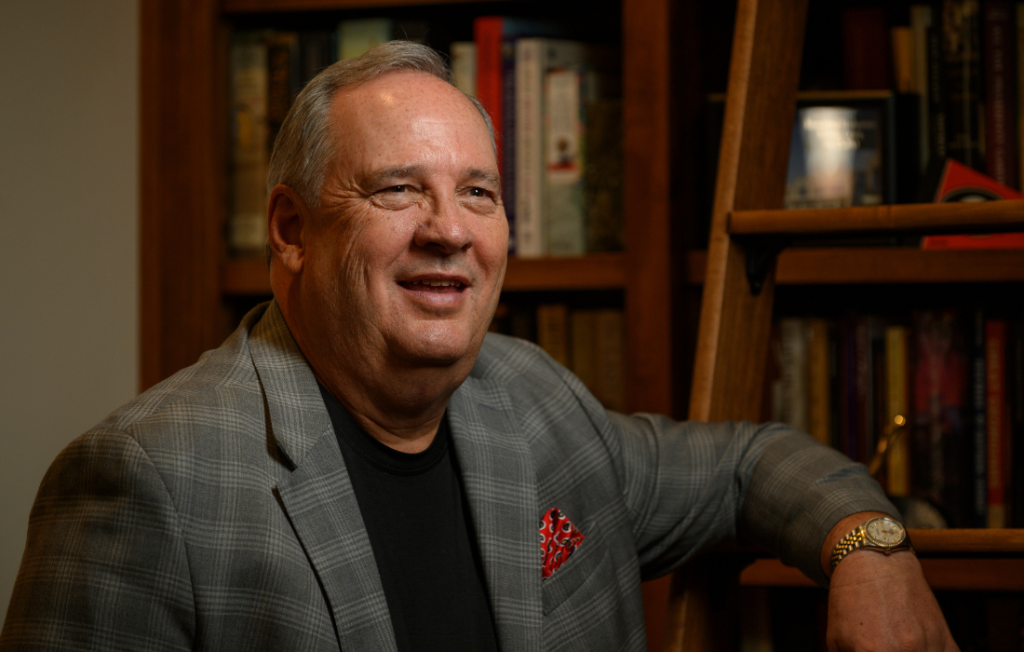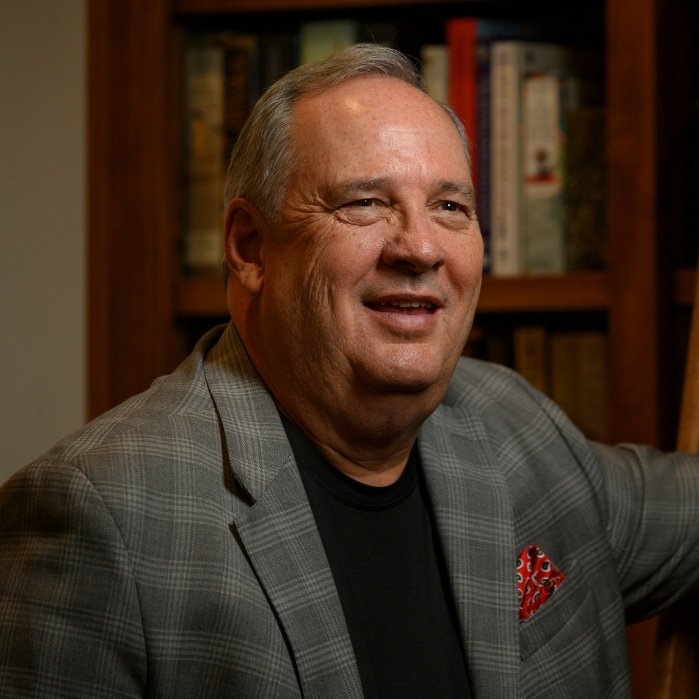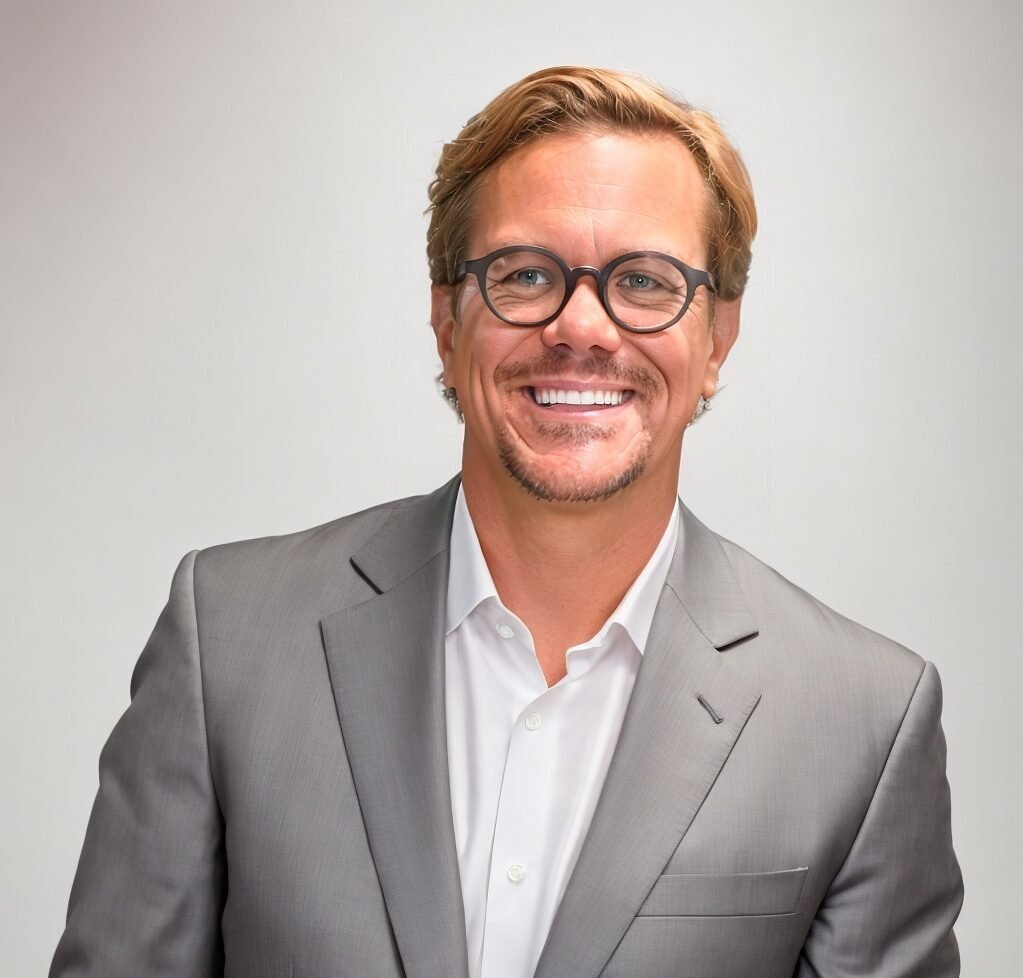I recently went one on one with John Addison, former Co-CEO of Primerica. John is the author of the New York Times bestselling book Real Leadership: 9 Simple Practices for Leading and Living With Purpose. He recently released Volume 2 of the book.
Adam: Thanks again for taking the time to share your advice. First things first, though, I am sure readers would love to learn more about you. How did you get here? What experiences, failures, setbacks, or challenges have been most instrumental to your growth?
John: My entire career all started with me answering an ad in the newspaper for a job that I viewed as a stepping stone. That “stepping stone” was A.L. Williams, and I was about to meet my destiny. What do they say about how God laughs while we make plans? Well, He was laughing that day. I had found a job within the insurance industry that I liked, but it meant I needed to get my MBA, so I returned to school. That action opened the door for my career to unfold. I rose through the ranks, eventually becoming president and then co-CEO of Primerica.
As for setbacks and challenges that have been instrumental to my growth, there was a time when we were trying to get Primerica out of Citigroup during the biggest financial crisis of our time. Banks were in bad shape, and we were caught right in the middle. We worked out several plans to exit the company, but the plans kept failing and coming back rejected. I was waking up sometimes at 2 a.m., covered in sweat in a dead panic, wondering if I was the one to get this job done. There were so many people and their families depending on me to come through. It was a brutal test of my faith in myself and my ability to persevere. What I know now is that when the going gets tough, you have to get tougher. There is no quitting, even if you are failing. You just have to find a way to get right back up and face your challenge again. I like to call it wrestling the alligator in front of you. I just had to remind myself that when one door closed, it was time to go through a window.
Another experience around the same time that changed my life greatly was a stroke I had while on a green getting ready to tee off in Hawaii. I knew something was wrong, but I didn’t know what. When I finally got back home and saw a doctor, they let me know just how close I had come to leaving my loved ones. It scared me, but it also brought my life into focus. So many things that most people fret over and worry about are just circumstances. At that time in my life, I was able to see where I wanted to put all my time and attention and why I wanted to put it there. It also changed how I think about business and what I think is important to do with our influence while we are still here. I think it’s our duty to lead other people to the best of our ability so they can go get the life they deserve too.
Adam: What do you hope readers take away from your book?
John: Publishing Real Leadership Volume 2 has been an exciting journey. I hope that people will read my life story in the book and dig into the book’s Real Leadership Roadmap to start putting some of those leadership principles into practice in their own lives. I hope readers are able to resonate with the stories, see themselves in the solutions, and encourage people to engage with their situations in a meaningful way that makes them feel like they are succeeding and getting one step closer to their goals, even if it’s only a small step.
Incremental growth is the best kind because it’s the kind that sticks. When you build incrementally on previous growth, you are creating a solid foundation to bolster yourself. I really hope that folks will experience that kind of insight and clarity around who they are as a leader, where they want to go, and what steps they can start taking today to make that happen. If they read the book, they are already predisposed to succeed.
Adam: In your experience, what are the key steps to growing and scaling your business?
John: I have always said that there are only two things you can control: your attitude and your effort. If you want to grow and scale your business successfully, the first step is to put forth an astounding amount of effort.
When it comes to scaling, leadership becomes the key component because you will find, as many small business owners know, that you cannot do it all yourself. You are going to have to rely on others. With that being said, the second step is delegation. A real leader isn’t someone who knows how to do it all, but they are someone who knows how to get it all done. You need to think about how you want your role as a leader to look. You want to determine what your strengths are and focus on how you can help your team best preempt and meet the needs of your growing business.
The third step is to focus on your role as a leader. You want to be the person who people are looking to to set a good example. You have to demonstrate the qualities you want your team members to have. If you want them to be more patient with one another, you need to focus on your patience with them. If you want everyone to be more generous, you have to get the ball rolling and set the standard for generosity. Gandhi was the one who said you have to “be the change you wish to see in the world.” As a leader, I agree with him wholeheartedly.
Adam: What do you believe are the defining qualities of an effective leader?
John: That’s a great question, mostly because there are so many ways to answer. In my mind, a real leader must have a heart of service. It’s not about building a big empire under you like a heap of rocks that you sit on top of and then issuing orders to the minions. That’s the opposite of what I suggest.
I found that when I focused on what I could do for others, how I could help lead, guide, and grow my team and their skills, that was what made the difference for them. That heart of servant leadership is essential in today’s business world because it’s the opposite of what so many folks do. They think the title next to their name on the door means they can coast because they already put in their time serving other big execs. I’m suggesting that the higher you go in any organization, the more you should be helping anyone and everyone you can. After all, who is in a better position to help everyone than someone who has worked in the various departments and knows the business well?
I already touched on having a bias for action above. You have to work hard, and I mean HARD…harder than anyone else. You have to be willing to make the hard sacrifices so your team doesn’t have to. I also think that humility is key to any leader’s success. You can’t be so focused on being the smartest person in the room. That will stop you from learning, which will consequently stop you from leading. You have to sit down, open your ears, and create an internal space for new information to come in. Real leaders are always open to hearing new ideas that might help change how they have been doing things without feeling like their intellect is being challenged or threatened.
Adam: How can leaders and aspiring leaders take their leadership skills to the next level?
John: Again, I think it comes back to focusing on how you can best serve those around you. How can you facilitate the team? Where do they need a morale boost? Are you paying attention to what’s really going on and putting their needs ahead of your own?
Asking great questions is one of the best things you can do because it means you aren’t stuck in one way of doing things. You are always open to new developments. That’s important.
Asking internal questions is right up there too. Start looking at yourself, your skills, pitfalls, and triumphs. When you are a leader, and you are willing to do the internal work on behalf of the betterment of your team, that is real leadership in action. You get honest so they can do better.
Adam: What are your three best tips applicable to entrepreneurs, executives, and civic leaders?
John: Believe in yourself and what you are capable of. That might sound cliché; in fact, I know it does, but it’s so important. You have to be the one to get it done, and if you don’t believe in yourself, your team is going to have a hard time finding a reason to believe in you.
Never give up, even when it’s challenging—especially when it’s challenging. You might have been just a breath away from reaching your goal, but you got discouraged and quit. Now you have lost your momentum and focus, and you feel like a failure. Stay the course when you are in it, and you won’t have to worry about dragging yourself back through the door after walking away right before the big win.
Be a lighthouse, not a weather vane. So many leaders change their minds, temperaments, and focus with just a breath of wind. It’s up to you to keep the focus and to help the team keep the main thing the main thing. When the storm is rolling in, and winds are blowing, it’s up to you to keep the team grounded and be their guiding light. You have to be the one who doesn’t panic and who consistently helps guide people closer to the goal.
Adam: What is your best advice on building, leading, and managing teams?
John: Fortunately, I learned from great leaders who showed me what to do in terms of recruiting. When it comes to building a team, you can recruit anyone, even a bunch of duds, but it’s what you do with them as you go forward that matters.
Initially, you have to take responsibility for their level of investment and help them find and plug into their why. Once you help them find their why, as a leader, it’s up to you to help them focus on that and find opportunities to help them succeed. One day, they will realize they are succeeding, even if only in small ways. Once you help someone tap into their why and they observe what many small steps in the right direction can turn into, you help them build some momentum as they grow into someone they might have never dreamed they could be. In short, you have empowered them. That’s a pretty neat gift to give someone.
I have never been able to carry someone all the way. I could carry folks a little here and there in the beginning, but making sure you have the right people in the right places is a great way to tap into that motivational aspect. When you have a team that is cohesive and successful, it’s not only its own reward, but it also functions as its own incentive as well.
You have to take responsibility, too. When things are going poorly, own it. When things are going well, share the credit. When you have your sights set high, you don’t get to the top unless you pull a lot of other people up with you. So you have to constantly put the ‘we’ before the ‘me’ and stay focused on the team’s goal as a whole, knowing that as the team does well, they raise you up at the same time.
Adam: What are your best tips on the topics of sales, marketing, and branding?
John: Sales is like anything else, you have to focus on helping people like, know, and trust you. You have to go out charged and charging. You can’t dilly around, waiting for the sale to walk through your door; you have to get proactive, take a step, make a decision, talk to people, smile at folks, and act in ways that get you closer to opening the door for your sale to convert.
There’s no reason to stick with a JOB (Just Over Broke). Find something you are passionate about, find a way to relate to people in that context, determine your strengths, and then brand and market accordingly. If you are on fire for what you are doing, people are going to be drawn to you.
A simple smile goes so much farther with people than you’d ever think it might. Make sure people see you smiling because then they will know that you have a positive attitude about and relationship with whatever you’re selling, and that’s very important.
Adam: What is the single best piece of advice you have ever received?
John: Be quick to forgive and even quicker to apologize. In the business world, you never know when that person you make enemies with today might come back to haunt you tomorrow. Don’t let your ego poke holes in your future before you even get there. If you mess up, apologize. If someone else messes up or wrongs you personally, forgive them and move right on with your life. That particular piece of advice might very well be the reason Primerica was able to get out from under Citi’s umbrella. It’s a small world. Tread lightly, and don’t make enemies.
Adam: Is there anything else you would like to share?
John: I just hope the readers of this blog know that there is no perfect recipe for real leadership. It depends on so many things, most of all the person undertaking the journey. And no two leaders look alike. You have to find your own way of tapping into and optimizing your leadership potential.
As you discover who you are and how you relate to others, and you embrace serving them as a leader rather than demanding service from them, you are going to reveal whole new layers to yourself that you have never uncovered. Don’t forget to revel in your self-exploration. Life and leadership have a few things in common, but one of the most important is they are both about the journey, not the destination.
I’ll see you at the top!









